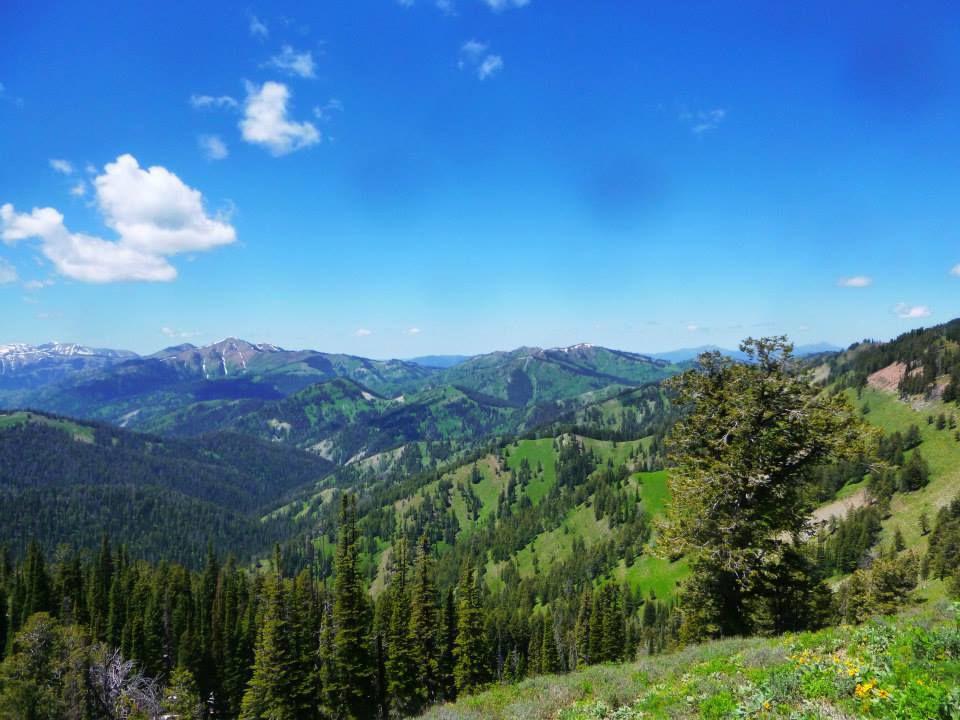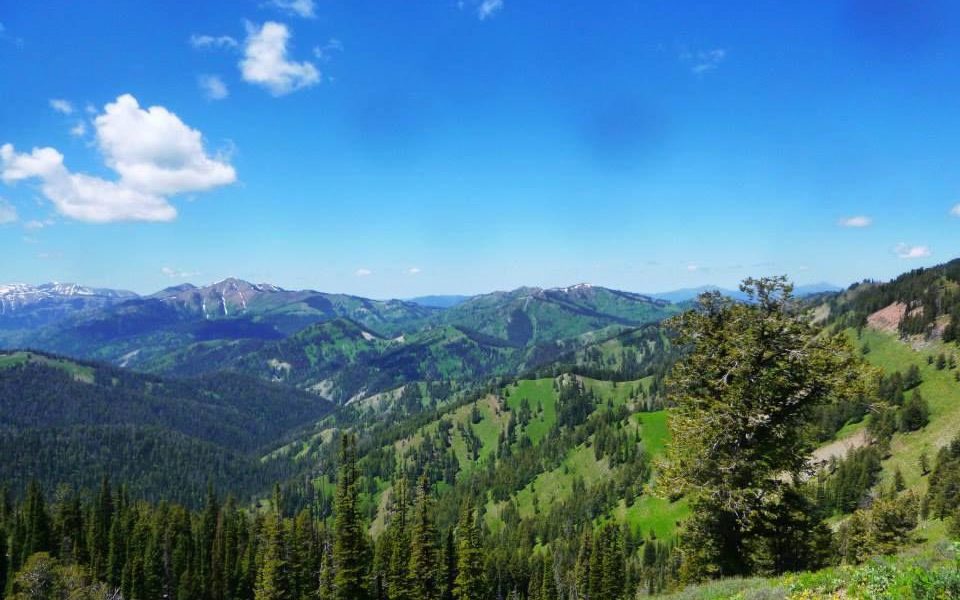
By Mike Koshmrl
Jackson Hole News&Guide
Via- Wyoming News Exchange
JACKSON — A new lawsuit claims the U.S. Forest Service is breaking a multitude of federal laws by allowing current levels of motorized and mechanized recreation in its Shoal Creek and Palisades wilderness study areas.
Brought by Jackson Hole resident Rob Shaul, the litigation asks the U.S. District Court of Wyoming to suspend mountain biking in both areas, and all-terrain vehicle use in the Shoal Creek study area. Shaul aired his grievances over email months before filing suit, arguing to Bridger-Teton National Forest Supervisor Tricia O’Connor that the 1984 Wyoming Wilderness Act demanded that the forest not allow motorized and mechanized activities beyond what was occurring at the time those lands were designated.
“However, mountain biking in the Palisades Wilderness Study Area, especially, has exploded in recent years, to include Forest Service-approved new trail construction for the extensive and growing system accessed off of Teton Pass,” Shaul wrote O’Connor in an email included in the appendices of the lawsuit, filed Sept. 19.
“The fast-growing bikepacking activity, hard-to-detect electric mountain bikes, and rapidly increasing population in Jackson and subsequent social media marketing is continually pushing mountain biking deeper into the Palisades interior and down to the Shoal Wilderness Study Area, in direct violation of the ’84 act,” he wrote.
Wilderness study areas are a protected class of land used in some circumstances as a precursor to land being elevated to bona fide wilderness, or alternatively “released.” The intent of the designation was to be temporary, but in Wyoming nearly four dozen WSAs have remained in limbo ever since former Wyoming federal delegates Dick Cheney, Alan Simpson and Malcolm Wallop shepherded the Wyoming Wilderness Act through Congress some 35 years ago.
The Shoal Creek study area, approximately 32,000 acres, butts up to the Gros Ventre Wilderness just north of Bondurant, stretching from near Granite Creek to near the Hoback Rim. The much larger Palisades, at around 135,000 acres, is split between the Bridger-Teton and Caribou Targhee national forests and generally covers the Snake River Range running between Teton Pass and the Snake River Canyon.
Environmental advocacy groups have a history of suing the Forest Service when they sense that promises of the Wyoming Wilderness Act and the wilderness “character” of study areas aren’t being upheld.
In 2006 the Greater Yellowstone Coalition challenged a Bridger-Teton decision that would have increased the number of days a commercial heli-skiing operator could drop skiers into the Palisades tenfold. Ultimately the Bozeman, Montana-based organization won, and the Forest Service more than halved the number of days of heli-skiing after negotiations.
This time around the lawsuit is in the name of an upstart advocacy group Shaul founded called Mountain Pursuit, which seeks to represent resident hunters of western states. It has 112 members and supporters, according to the complaint. The supposedly illegal uses targeted by the litigation were selected with hunting in mind.
“Plaintiffs are not challenging winter uses because the big game which Mountain Pursuit seeks to protect generally move out of the wilderness study areas to lower elevation winter range during the winter snowmobiling season,” the complaint says. “Plaintiffs’ usage of the wilderness study areas is focused on spring, summer and fall; with the fall hunting season being a period of particular concern.”
To argue the case, Shaul hired Valerie Schoneberger, of Lander, and Mike Chiropolos and Michael Lazorchak, respectively from Boulder, Colorado, and Montpelier, Vermont. The suit names the Bridger-Teton’s O’Connor and Caribou-Targhee Supervisor Mel Bowling as defendants.
The forest, citing its policy on pending litigation, declined to comment.
But O’Connor defended the Bridger-Teton in her early email exchange with Shaul.
“With the exception of the Black Canyon and Lithium trails near Teton Pass, we have no evidence to indicate that mountain bike has significantly increased in the wilderness study areas,” the forest supervisor wrote. “If you have data that suggests otherwise, we would certainly be interested in seeing it.”
Motorized use of the Shoal Creek and Palisades wilderness study areas, she wrote, “clearly” has decreased compared to the 1980s and ’90s, when both areas were open to motorized travel.
The lawsuit’s challenge of mountain biking and ATV use has stirred up recreation advocates, including folks who sat on a Wyoming Public Lands Initiative county committee with Shaul. The diverse committee tried, and mostly failed, to come to a consensus about what should become of the two study areas.
Jesse Combs, cofounder of the Advocates for the Multi-Use of Public Lands, a pro-recreation group that emerged during the committee process, said in a statement that he’s “100% behind” the Bridger-Teton’s position that mountain biking is legal and allowed in both areas.
“Advocates for Multi-Use of Public Lands rejects any special interest group who tries to push other recreationists out in the pursuit of an ‘all for me’ ideology when it comes to our public lands,” Combs said.
Tony Ferlisi, who directs Mountain Bike the Tetons, proclaimed Shaul’s lawsuit to be “unproductive, self-serving and counterintuitive to the spirit of collaboration.”
“The Palisades is a special place for myriad reasons and its overall value rises above any one individual, group or cause,” Ferlisi said in a statement. “We are better than this.”
During the Wyoming Public Lands Initiative negotiations, Shaul led an effort to create a middle ground proposal the committee as a whole could live with. His effort failed, largely because recreation advocates who are now criticizing the lawsuit walked away from the table.
An attempt to reach Shaul on Tuesday was unsuccessful.







